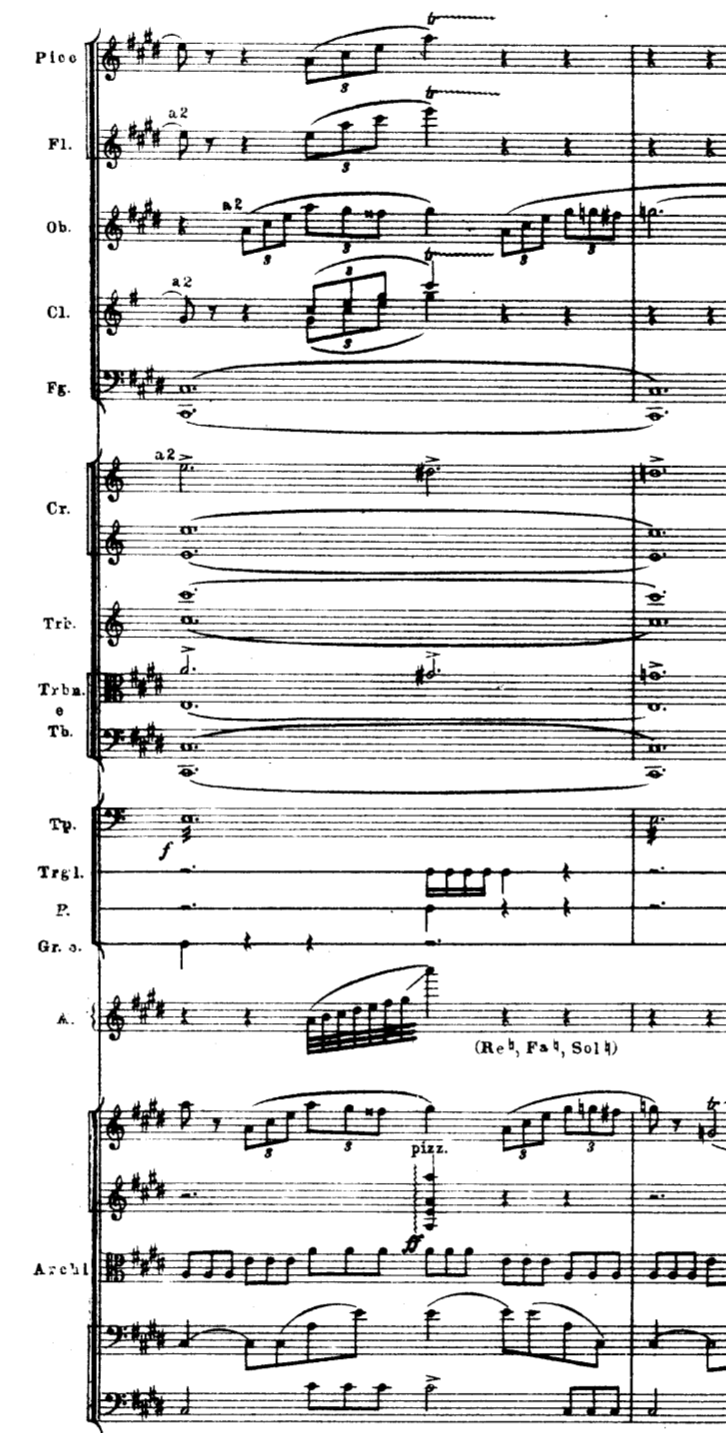A Personal Accomplishment
There are some passages in the orchestral repertoire that are universally considered difficult: the Brahms 1st Symphony chorale, the solos from Bolero or Mahler 3, etc. But then, for whatever reason, there are also those passages that hit individual players on their personal weaknesses. Maybe one player might find them challenging, but another might not think they’re a big deal.
For me, the ending of Scheherazade has been one of those kinds of passages. It’s those first three descending loud notes — A, G-sharp, G — after the loud trombone section bit. To play those with clarity and good sound, and to project over the orchestra in coordination with the horns, has been something that has been extremely challenging to me over the years.
This past January, we played Scheherazade, and I finally got the result I’ve always wanted in this spot. It’s kind of funny, because, in the context of the entire piece, it is overshadowed by many other places, including difficult multiple tonguing and other rhythmic bits. So it’s not like anyone listening to the performance would know that it’s those few notes that were most meaningful to me.
In that way, this was a very personal accomplishment. (You can hear me play this passage at about 00.40 into the recording below.)
The boring answer as to how I have improved my ability to perform this passage is patience, trial and error, and slowly gathering pieces of information from people I greatly admire, gradually incorporating them into my playing over a long period of time.
Specific to trombone technique, I’ve come to prioritize what you might call immediate sound. Any kind of hesitation will leave you with a lack of flow of air and an embouchure that prevents the volume and color you need in a passage like this one in Scheherazade. If you’re an Alessi Music Studios subscriber — and I highly recommend you become one if you’re not already — you’ll know Joe Alessi is big on this concept. He’s the source of this particular bit of information.
We’ve had Ian Bousfield in town as a soloist, conductor and/or coach several times since I’ve been with the orchestra, and each time he has come, I‘ve tried to soak up as much of his way of playing as I possibly can. Then, afterwards, I’ve tried to figure out in my own words and concepts what it is that makes his playing so effective. With regard to this Scheherazade passage, it is employing Ian’s focus and efficiency in the high range. To me, it’s like Ian skims the cream off the top of the sound in passages like this, only using that brilliant, projecting part of the sound that can leap out of the bell and into the audience.
The more exciting answer to what I’ve changed is: my mouthpiece and setup, haha. Over the years, I’ve gravitated towards a setup that adds more upper overtones to my sound. I’ve done some tests with an audio spectrum analyzer, and have been led by those results, as well as some conversations with Christian Griego, to choose a lighter-gauge bell, standard slide (no more nickel bass crook), and a mouthpiece that is a bit wider but more shallow. This last concept about mouthpieces is one that Ian encourages too, and I’m using his V3 mouthpiece in the recording, as a matter of fact.
Me trying to improve in my performance of this passage in Scheherazade is a pretty good example of the peculiarity of my life as an orchestral musician. We’re talking about three notes that come twice in a single piece of music, notes that honestly very few people in the audience would even really notice how I play them, in a work that comes around only once every four or five years or so. However, the reality of the existence of these few tones, and the fact that I will surely have to attempt them again, has remained somewhere in the back of my mind. Each time I’ve heard anything that might be relevant to making them sound better has tripped a switch somewhere in my brain that says “perhaps I can use this for those notes in Scheherazade.” Music is famously subjective and there’s always room for improvement, so I won’t be ending my quest here: those switches will continue to trip when something helpful makes itself known to me. However, I can say that I have turned a corner and that the result I got in this passage in January was a personal accomplishment.
